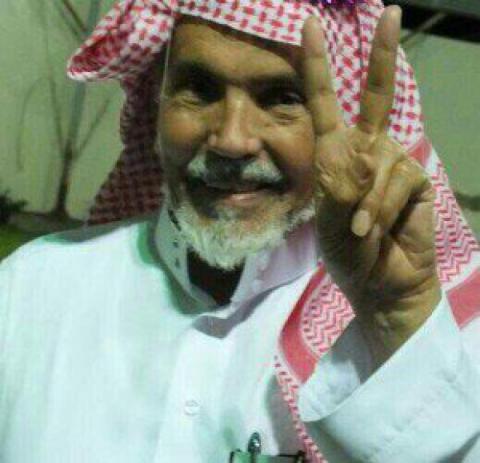
On 12 October 2016, and as part of its campaign against arbitrary detention in Saudi Arabia and the prosecution of the Saudi Civil and Political Right Association (ACPRA), Alkarama, AlQst, the Monitor of Human Rights in Saudi Arabia (MHRSA), the Saudi Organization for Rights and Freedoms (SAORF)and Dewany have called on the UN High Commissioner for Human Rights, Zeid Ra'ad Al Hussein, to urge the Saudi authorities to immediately release all members of ACPRA and implement legal changes as to guarantee the fundamental rights of all Saudi citizens.
Mister High Commissioner,
In October 2009, the Saudi Civil and Political Rights Association (ACPRA) was established to promote and protect fundamental rights and freedoms in Saudi Arabia. ACPRA was never legally recognised by the government, yet was only formally banned in 2013. As of May 2016, all of its 11 members have been prosecuted and subjected to severe retaliation by Saudi authorities for their human rights activism and cooperation with the United Nations human rights mechanisms.
ACPRA was founded with the aim of promoting and safeguarding the fundamental human, civil and political rights of all Saudi citizens. The association documented cases of human rights violations and communicated them to the relevant Special Procedures and a number of ACPRA's members have been mentioned in the UN Secretary General's yearly report on Cooperation with the United Nations, its representatives and mechanisms in the field of human rights. ACPRA further peacefully advocated for a constitutional monarchy, a universally elected parliament, an independent judiciary and for the protection of fair trial rights in Saudi Arabia.
In 2013, the association was dissolved by the Saudi authorities and as of May 2016 all its members prosecuted. Many of them were charged under the 2014 Law on Terrorism and its Financing, which defines terrorism in vague and broad terms, and were sentenced by the Specialised Criminal Court to lengthy prison sentences, ranging from five to 15 years. The members of ACPRA all faced vaguely defined charges such as "insulting the judiciary", "calling to break allegiance with ruler", "accusing the judiciary of being unable to deliver justice", "communicating with international organisations in order to harm the image of the State" and "forming or joining an illegal organisation."
The 11 prosecuted members of ACPRA are: Essa Al Hamid (sentenced to 9 years in prison, followed by a 9-year travel ban); Dr Abdulrahman Al Hamid (sentenced to 9 years in prison, followed by a 9-year travel ban); Dr Abdulkarim Al Khoder (sentenced to 10 years in prison, followed by a 10-year travel ban); Omar Al Said (sentenced to 7 years in prison and a 10-year travel ban); Mohammed Al Bajadi (sentenced to 4 years in prison, 4 years of suspension and a 10-year travel ban); Sheikh Sulaiman Al Rashudi (sentenced to 15 years in prison and a travel ban of 15 years); Dr Abdullah Al Hamid (sentenced to 11 years in prison followed by a travel ban of 11 years); Dr Mohammad Al Qahtani (sentenced to 10 years in prison, followed by a 10-year travel ban); Saleh Al Ashwan (sentenced to 5 years in prison followed by a 5-year travel ban); Fowzan Al Harbi (sentenced to 10 years in prison, followed by a 10-year travel ban); Abdulaziz Al Shubaili (sentenced to 8 years in prison followed by an 8-year travel and social media ban).
Arbitrary detention and violations of fair trial rights are issues of grave concern in Saudi Arabia and are systematically employed by the authorities to crush dissent and silence opposing voices. At the core of these issues lie several shortcomings, including the absence of a Criminal Code, which gives individual judges large discretionary powers to determine criminal punishments and allows them to charge individuals with broad and ill-defined charges such as those listed above. Another factor is the establishment of the Specialised Criminal Court in 2008, which plays a major role in undermining fair trial guarantees as it has been established to prosecute terrorist crimes, but has never made its rules of procedure public. Furthermore, the court is composed of a panel of judges nominated by the Ministry of Interior, who therefore lack independence and impartiality.
Though widespread in the Kingdom, arbitrary detention greatly affects the work of human rights defenders in Saudi Arabia, who are targeted solely for their peaceful activism and denouncing the country's alarming human rights record. These actors are essential to the betterment of society and the protection of fundamental rights and freedoms and deserve, now more than ever, the support of the international community.
We would like to recall that UN Human Rights Special Procedures such as the Working Group on Arbitrary Detention and several Special Rapporteurs have denounced the prosecution of ACPRA members and your predecessor, Ms Pillay, has expressed her grave concern with regards to the prosecution of ACPRA members denouncing the fact that "proceedings against human rights defenders in the Specialised Penal Court, as well as in other courts in Saudi Arabia, have fallen short of international fair trial standards."
Today, on the occasion of the seventh anniversary of the establishment of ACPRA, we kindly ask that you, in your capacity as High Commissioner for Human Rights and a person of high moral standing, denounce the prosecution of human rights defenders in Saudi Arabia, especially ACPRA members, and request the Saudi authorities to immediately release them. We further request that you call on Saudi Arabia to draft and adopt a criminal code in line with the Universal Declaration of Human Rights. We finally ask that you call on the Saudi authorities to dissolve the Specialised Criminal Court and to revise its Law on Terrorism and Financing to restrict the definition of terrorism to acts of violence that specifically target civilians and in any case not to use such law to silence non-violent activists and human rights defenders.
Undersigned organisations:
Monitor of Human Rights in Saudi Arabia (MHRSA)
Saudi Organization for Rights and Freedoms (SAORF)
For more information or an interview, please contact media@alkarama.org (Dir: +41 22 734 1008).
